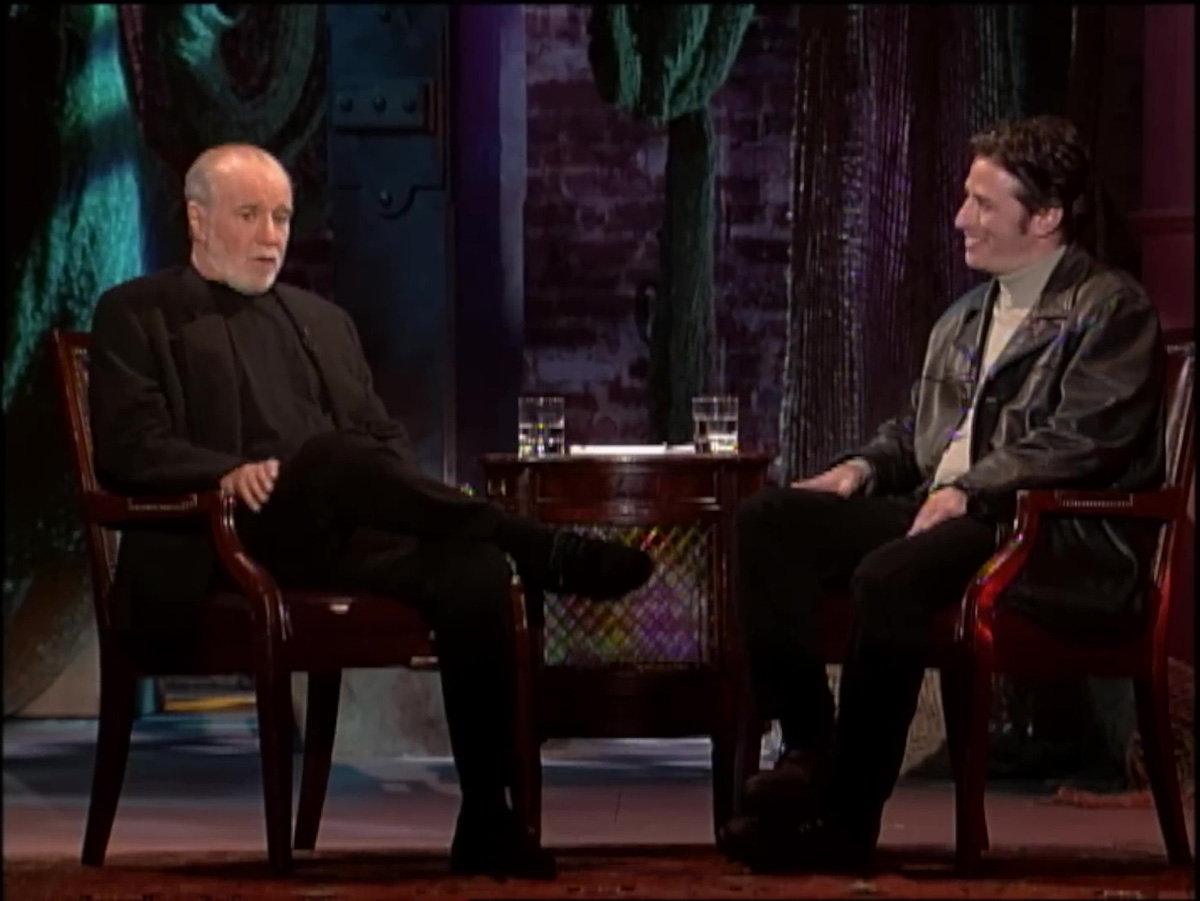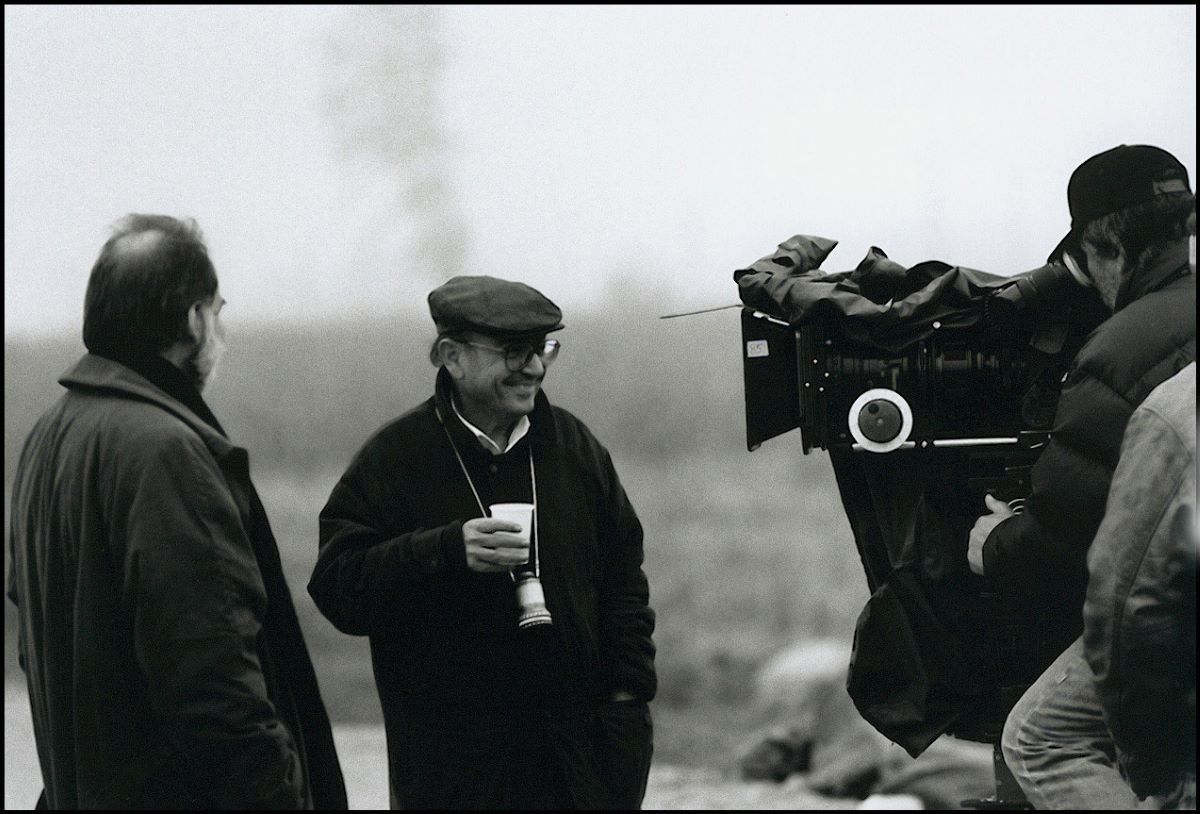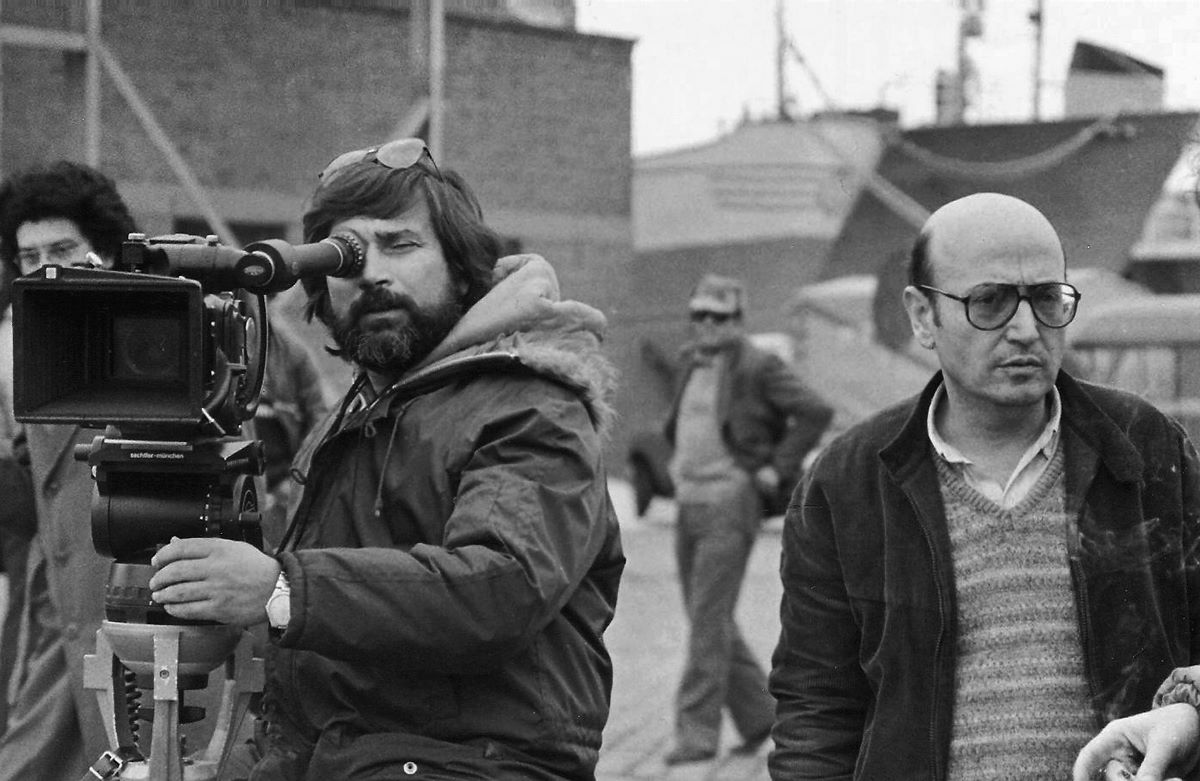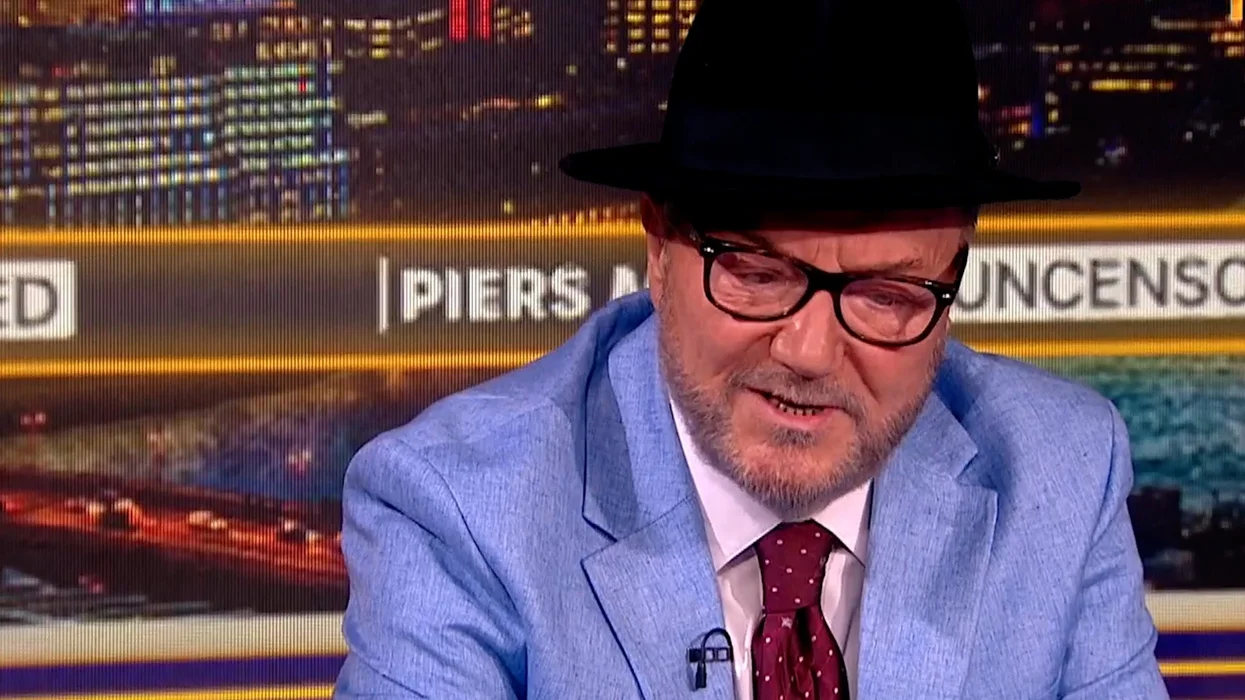In an interview conducted by Jon Stewart, George Carlin talks about various aspects of his life and career, reflecting upon his childhood, formative influences, and his perspectives on comedy and creativity.
From a young age, Carlin felt an innate inclination toward the world of performance and the art of eliciting laughter from others. He attributes much of his comedic beginnings to the nurturing environment provided by his parents, individuals who exuded both humor and creativity. Additionally, Carlin highlights the impact of his grandfather, who possessed a dual identity as a law enforcement officer and a writer, and his mother, who held a prominent role as an advertising executive in his life.
Carlin’s journey through the conventional educational system was marked by a sense of not quite fitting in. He attended an experimental school that boldly discarded the typical grading system and eschewed corporal punishment, an environment that proved instrumental in fostering and nurturing his creative tendencies.
The interview also gets into Carlin’s personal struggles with addiction, offering a candid examination of his battles with substances. He credits his eventual triumph over addiction to the discovery of pursuits and connections that held greater significance in his life than the allure of drugs or alcohol. Throughout this challenging journey, Carlin acknowledges the indispensable support provided by his family and his dedicated fanbase, both of which played pivotal roles in helping him maintain his path to recovery.
George Carlin’s unguarded and insightful responses offer a distinct vantage point on the intricacies of the world, as seen through the lens of his remarkable career.
* * *
40 YEARS OF COMEDY
HBO, 1997
JON STEWART: When you were a kid growing up, you wanted to be Danny Kaye, and Bob Hope. So, look, how do you think this thing is working out so far?
GEORGE CARLIN: Well, I knew I wanted to stand up, and you know, I’d be silly and have people say, ‘Ain’t you cute? Ain’t you cute and clever?’ And that’s all it was, is a reward, a psychic reward, you know, when you’re a kid and you find out that you can get the attention of adults and approval and a little bit of respect, and you just hung for it, you keep going back for it. And I have, fortunately, genetic, you know, my little toolkit, my genetic toolkit, I was given, included a mother and father who were very funny people, could do accents and dialects and tell funny stories about what happened on the bus that morning and have a punch line. So, you don’t lick it off the rocks, they say in Ireland, so I think I thanked my grandmother’s milkman, actually, you never know where these things…
JON: It’s interesting, you know, as I watch now and through all the years of listening to your abs of things, your fascination with language, it’s so apparent– watching your work, it’s almost like watching a musician, you know, the way you weave words and use language for emphasis and all that. Was that always a fascination for you, even as a kid?
GEORGE: Well, to go backward with the question, don’t forget what we do is oratory, it’s rhetoric, it’s not just comedy, it’s a form of rhetoric. And with rhetoric, you look and listen for rhythms, you look for ways to sing at the same time you’re talking. And to go, ‘doom, doo doo doo doo doo doo doo doo doo doo…,’ and it’s just natural. My grandfather, whom I never knew, was a policeman in New York at the turn of the century, and he was an uneducated man, self-educated. And he, in the course of his adult life, he wrote out the works of Shakespeare by hand because of the joy it gave him.
JON: That’s an obsessive young man.
GEORGE: Yeah, and most everything is genetic, and my mother cared a lot about language, my father was a champion public speaker of 1935, he won the mahogany gavel, over 800 other public speakers from the Dale Carnegie Public Speaking Institute, and he was great. I never knew him either.
JON: Were your parents put off by the direction that you went into when you started to go counterculture? Was it a difficult transition for them to watch?
GEORGE: Well, he was out of the picture, he was brilliant, and he was a top salesman in advertising, but he couldn’t metabolize ethanol efficiently, so he was given his hat. My mother was very brave, she left him when I was 2 months old, my brother was 5 years. She left down a fire escape, so he was gone. My mother was very kind of controlling, wanted to control my life, and was heartbroken when I began with the dirty language and the awful stuff he says about business. She was a bit, she was an advertising executive secretary, loved the business world, thought it was just the finest thing that ever happened. And so when I went in that direction at first, very opposed until one day– we lived in the same street that I grew up. I thought I went to school, and I went to school on the same block I lived on, something like that, Corpus Christi school, and the nuns were great. It wasn’t a typical Catholic school, it was an experimental progressive school that didn’t have grades, didn’t have any sort of corporal punishment, it was just very, very wonderful school. And the nuns, she would see the nuns in the street, they would say, ‘Oh, we saw George on The Tonight Show,’ and she, being a bit of an actress, she would say, ‘Oh, it’s the awful language, Sister, the awful language.’ And one of them said to her, ‘No, no, you don’t understand, he’s using it for other purposes, he’s not just doing it for that, it’s kind of like part of what he does, don’t you understand? It’s this and that and so forth.’ So she said, ‘Oh, well, oh,’ and from that day on, she was okay with it because the church had approved it. That was that.
JON: People who deal in content that’s on the edges, you do oftentimes live a life that’s similarly on an edge, and a lot of those people go off the rails, and we lose them and their talent. And you’ve been able to not do that and being able to pull it back in.
GEORGE: And another luck stroke, you know, you gotta have luck in this world, part of its your genetic makeup, that’s luck, and then what you do with it is also partly genetic because hard work is genetic, the desire to do hard work, the willingness to work hard and be determined and not be said, not be turned aside, that’s all genetic too. It can be altered a little, reinforced, but some of the people who had so much edgy promise, they died young. I mean, Lenny Bruce, Sam Kinison, Andy Kaufman in his way, Freddie Prinze, John Belushi, Bill Hicks, and it’s just, I don’t know, of course, Bill had a natural disorder of his own, I think so did Andy, but it’s not always behavior, but — so it’s not just genetic — but it’s just that, I think there’s a degree of luck and intellect involved in giving up things that hurt you. That the drug and alcohol thing, it seems to me, comes down to this: drugs and these things are wonderful, they’re wonderful when you time first. They’re not around for all these millennia for no reason. First time, mostly pleasure, very little pain, maybe a hangover. And as you increase and keep using whatever it is, the pleasure part decreases, and the pain part, the price you pay, increases until the balance is completely the other way, and it’s almost all pain, and there’s hardly any pleasure. At that point, you would hope, that the intellect says, ‘Oh, oh, this doesn’t work anymore. I’m going to die, and I’ll dosomething.’ But you need people around you who can help you, and you need something to live for. You have to have something to look forward to– to bring you out. You know, there are a lot of people don’t have a lot to live for, and they’re sort of stuck inside.
JON: Are there ever any fear that by giving up the drugs, you lose a bit of a genius by giving up the wild lifestyle? Sanity, being…
GEORGE: Well, that’s been a canard for a long time, that most of this creativity comes from being wacky, and I’m sure there’s a lot of truth in that as far as just being plain old wacky. Where the drugs are concerned, and alcohol, they do seem to open a window for you. They do seem to broaden the vistas at first. The thing you have to do is learn when, you know, it’s like all these great writers who became drinkers, you have to sort of let, like with pot, I’m not a big drug user anymore, but I have always a joint somewhere near me. I don’t kid, might be hidden. What I do, and I hardly touch it, maybe once a month, that would be frequent for me. But when I’m writing something, and I write perfectly straight, perfectly sober, I write a whole lot of stuff, six, seven, eight, nine pages. I really pour it out. The next day, one hit, it’s all I need now, one hit, and it’s punch-up time. Time to get this thing going. And you do find with that sort of judicious use, I find there’s some value in it. But most of the things we use don’t let you leave them alone. They don’t, pot does, thank goodness for that.
JON: Well, that’s excellent.
GEORGE: What?
JON: More than fair… Why do you still care? Why do you still care enough to keep you at a point in your life where you could go back, you could do your month in Vegas, and Florence Henderson could open up, and you could go and hit a couple of balls and then some pinball. Why do you still care so much?
GEORGE: Well, I’m not comparing myself to any of these people, believe me, but you wouldn’t say to Picasso, ‘When are you gonna put those brushes down, get rid of the canvas, you’ve done it?’ Not you, I’m an entertainer first and foremost, but there’s art involved here, and an artist has an obligation to be on route, to be going somewhere. There’s a journey involved here, and you don’t know where it is, and that’s the fun. So you’re always gonna be seeking and looking and going and trying to challenge yourself. So without sitting around thinking of that a lot, it drives you in it, and it keeps you trying to be fresh, trying to be new, trying to call on yourself, calling yourself a little more, you know,
JON: And willing to put up with the grueling, promotional schedule and everything.
GEORGE: That’s the only way.
JON: Picasso never had to do morning shows in Albuquerque, you know?
GEORGE: Right, and the only way I can do this is to go where the people are. They will not come to my house… […] bus rides and everything, they will not come. I have to go to Stevens Point, Wisconsin, or wherever it is, and the audiences are great. And they buy the tickets ahead of time, and they really wait for you to come there and see you in the theaters and concert halls it’s special because the audience, they do it beforehand, and you’re the whole evening. In Las Vegas, you’re an afterthought. You’re an also well, we could go gambling, we could go hooker in, we could get drunk, we could go to the convention, no, let’s go see this guy. And if they like you, they do, but they’re not committed fans, so it’s a different tone there, but it still works. You can still do some things there that you could feel good about, you know?
JON: Do you feel your place in comedy now? Do you feel that, you know, because I’ve been spending a lot of time with the festival and everybody that I would mention, you know, hey, I’m gonna do this, George Carlin should be in there, their faces light up, and to a person, “really Carlin?,” and can I meet him? Is he around? Do you feel that place is that?
GEORGE: Well, that is growing on me, I think, you know, longevity is a wonderful thing. Sometimes you get applause just for not being dead when you say, when you say, I’m going to be 60, they applaud that. “Wonderful, not dead, 60.” Uh, so, but, but I’m, I’m getting a sense of it, you know, when you’re in planes three days a week. I go out every Friday, I come home every Monday. It’s three different cities, three different nights, airports, hotel lobbies. People have wonderful people. I love individuals. I hate groups of people. I hate people who have– a group of people with a common purpose because pretty soon they have little hats and armbands and fight songs and a list of people they’re going to visit at 3:00 a.m. So I dislike and despise groups of people, but I love individuals. Every person you look at, you can see the universe in their eyes, if you’re really looking, and they’re great. And so, cumulatively, I have gotten the feeling that I’m in this big family, a family life I never had, by the way, this, so to say, extended family of people who feel like you’re their cousin, you know? I say, ‘Georgie’s 1961. I saw you,’ ‘Hey, remember, yeah, oh, and you know what you said?’ And I said, ‘Did I?’ Oh, yeah. So it’s, you’re not just great. And so, cumulatively, you say, ‘Well, I guess I’m in the family. I guess it’s okay.’
JON: Yeah. Do you think it doesn’t boil down after 10 HBO hours, after a multitude of best-selling albums, after Grammy nominations, after Emmy nominations, after Cable ACE Awards? Does it all boil down to what you would said originally that it’s about, ‘Hey, dig me…’
GEORGE: ‘Hey, look at me, ain’t I cute?’ That’s it, it just involves. It’s just a dopey call showing off. And if you can get them to not only stop and listen, but say, ‘Isn’t he cute? He’s real– you’re cute.’ If you can get the approval– you see, at school, we didn’t have grades, so we didn’t have A’s and B’s and C’s and D’s, the only A’s I got, and this is a little corny, I got their attention. I got their approval, their admiration, their approbation, and their applause. And those are the only A’s I wanted. And I got them. So…
JON: So you have mine, sir. I just want to say that, I can’t tell you enough what a pleasure this has been for me to spend some time with you and to be a part of this show, and thank you very much for all the wonderful– to know you a little.
GEORGE: And you are gonna show us a lot, and I look forward to it.
JON: Thank you very much, sir. George Carlin!
* * *





